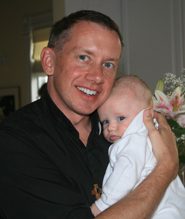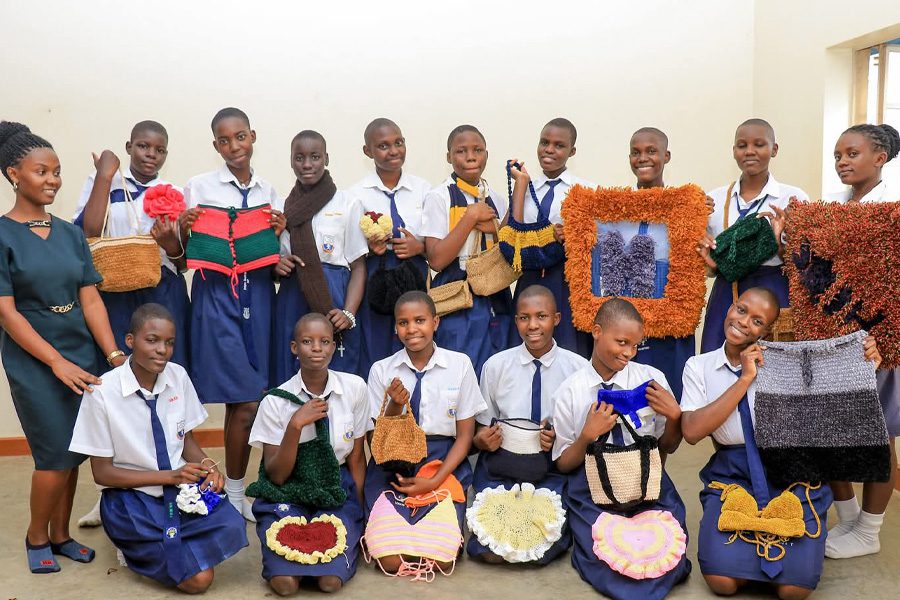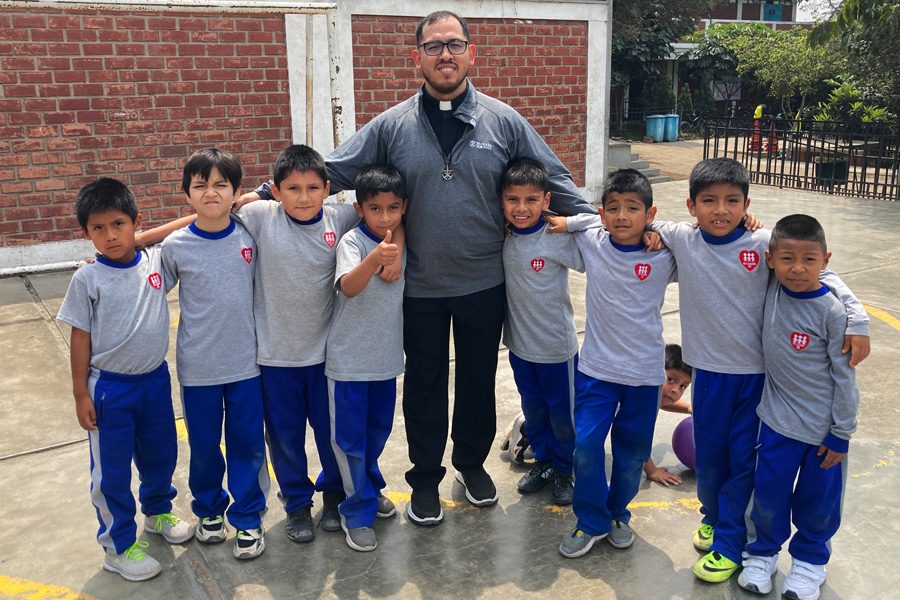
I am pictured here holding one of my five godsons. (Yes, five, and they are all boys. When his mother was pregnant, I joked with the couple that they would have a boy since I did not know how to be godparent to a girl.)
The image of the two of us captures the essence of my present ministry in Holy Cross – studying religious education so as to tradition in a new key. You see, his mother is a pianist (hence the metaphor), and this boy himself will eventually play the piano, which he began to learn by listening in utero.
For me, that’s a powerful image – his listening from before birth – because the dissertation I am about to propose (to the faculty of Fordham University’s Graduate School of Religion and Religious Education in New York City) is concerned with the neglect of listening in life in general and the role that religious education in particular plays in the enrichment, as well as the neglect, of listening.
It’s a curious aspect of modern life that listening, while the most utilized communication skill, is the least taught. And what tends to keep us in this condition is our assumption that we listen much better than in point of fact we do.
Nevertheless, if we were to concede that our listening could stand to gain some ground, doesn’t it make sense that such enrichment would come from religious tradition? Historically, religious traditions have given pride of place to listening. Solomon asked for a listening heart. Jesus appealed to his audience to listen to another parable. And in laying out his rule for monastic life St. Benedict summoned the novice to listen carefully.
Perhaps the Trappist monk Thomas Merton put it best when he wrote: “My life is a listening. [God’s] is a speaking. My salvation is to hear and respond.” Indeed, it was with such listening in mind that I promised to ensure the resonance of faith from one generation to the next – from that of my godson’s parents to his own. In the field of religious education we call this traditioning, literally “to hand on or give across generations”, but of late this practice has been recognized to be in need of renewal, to put it mildly.
So it is to such a ministry that I have been brought by providence and sent on assignment as a professional “educator in the faith.” As a seminarian, I did not foresee this particular path in religious life. I had studied theology before entering the seminary, but that my field is religious education, not theology per se, demonstrates to me that if you set yourself out on the journey with God wholeheartedly and listen deeply, then the path to a field rich in treasure will reveal itself. I am very glad to have left everything to gain such a field of treasure.

Ordained a Holy Cross priest in 2005, Fr. Kevin Sandberg, C.S.C., spent several years in parochial ministry at Holy Cross parishes in California and Arizona. Currently, he is doing doctoral studies in Religious Education at Fordham University in New York, N.Y. He is one of over a dozen Holy Cross priests in the United States Province pursuing advanced degrees to better serve as educators in the faith. Learn more about the work of Holy Cross in education, as well as hear from some of the other Holy Cross priests in advanced studies.



